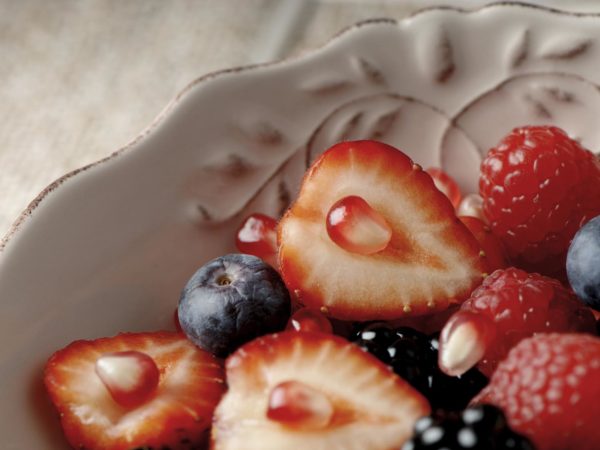Acai: A Better Berry?
What do you think of acai, a berry said to be one of the most nutritious foods in the world? Acai juice is showing up in natural foods stores, and all I know for sure about it is that it’s very expensive.
Andrew Weil, M.D. | December 8, 2006

Acai (pronounced ah-SAH’ee) is a Brazilian berry (Euterpe oleracea) that is being touted on the Internet and elsewhere for its high antioxidant content. Reportedly, acai provides 10 times the antioxidants found in red grapes and 10 to 30 times the anthocyanins found in red wine. It is now being promoted as an aid to weight loss, lowering cholesterol and boosting energy.
Native people in Brazil have traditionally used acai berries to treat digestive disorders and skin conditions, according to University of Florida researcher Stephen Talcott, who has been investigating the antioxidant effects of the berry. He and colleagues have published findings from laboratory studies showing that extracts from acai berries caused leukemia cells to self-destruct. While Talcott cautioned that the study doesn’t show that acai could prevent leukemia in humans, he noted that compounds that show good activity against cancer cells in cell cultures are likely to have beneficial effects in the body. Past research on other compounds has not shown this to be true, and in my mind, this is a big inferential leap that needs to be validated by further research.
Talcott is now looking into the effects of the antioxidants in acai on healthy humans. This study is aimed at determining how well the compounds are absorbed into the blood and how they affect blood pressure, cholesterol levels and related health indicators.
Acai berries are highly perishable and are traditionally used immediately after picking. For that reason, acai is available outside Brazil only as juice or as products that incorporate juice such as smoothies, powders, and capsules. There are no studies on products containing acai, which tend to be pricey and which many people find unpalatable.
Acai may be rich in antioxidants, but that doesn’t mean that high concentrations of those phytochemicals are making it from the berries into the juices, smoothies, etc. Until we know more about these products, I recommend sticking closer to home for your antioxidants. Opt for organically grown blueberries, which are easily obtainable in fruit form, are much less expensive and give you fiber as well as plenty of antioxidants. And don’t forget black raspberries and pomegranates, both of which have good scientific evidence for their health benefits behind them.
Andrew Weil, M.D.










